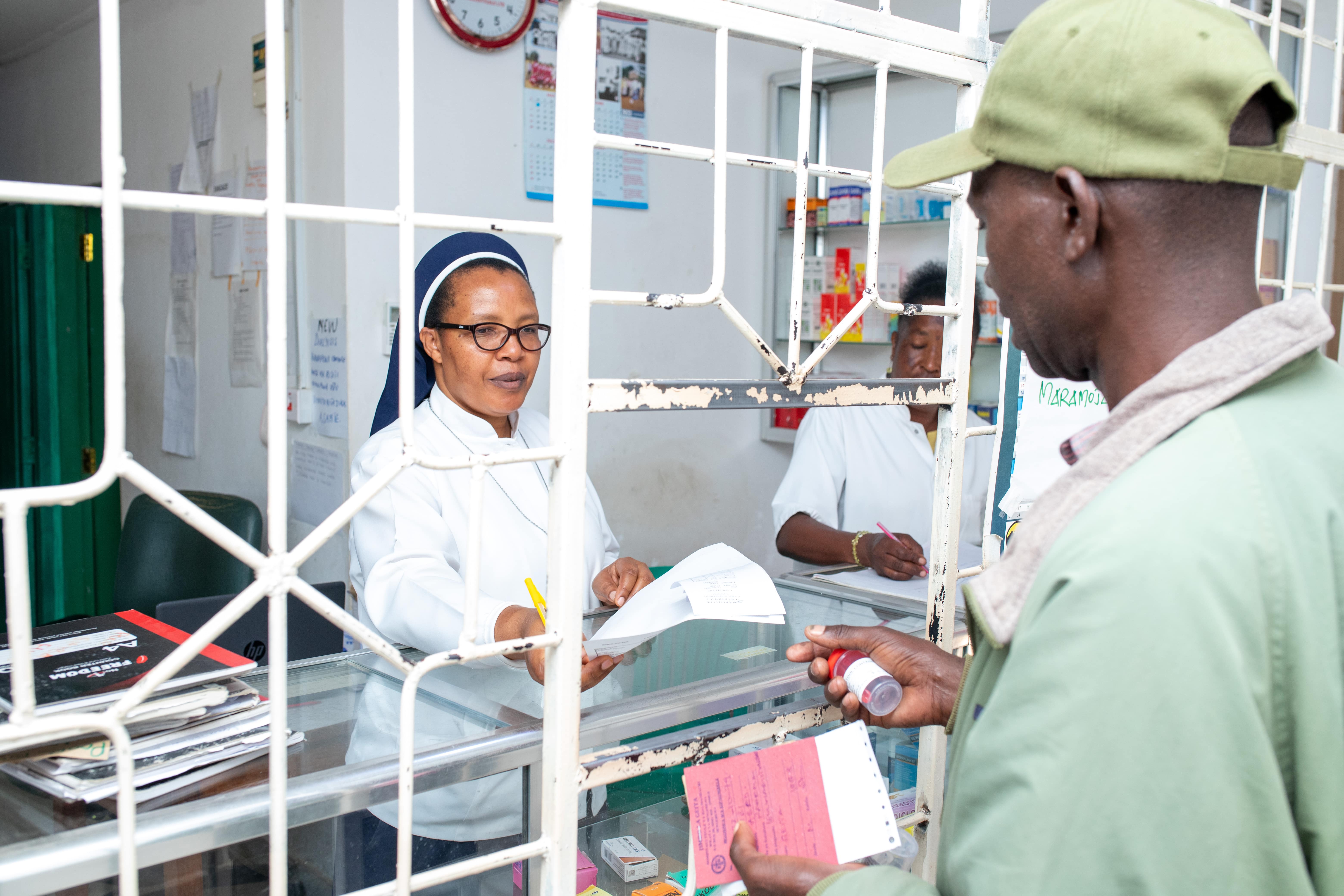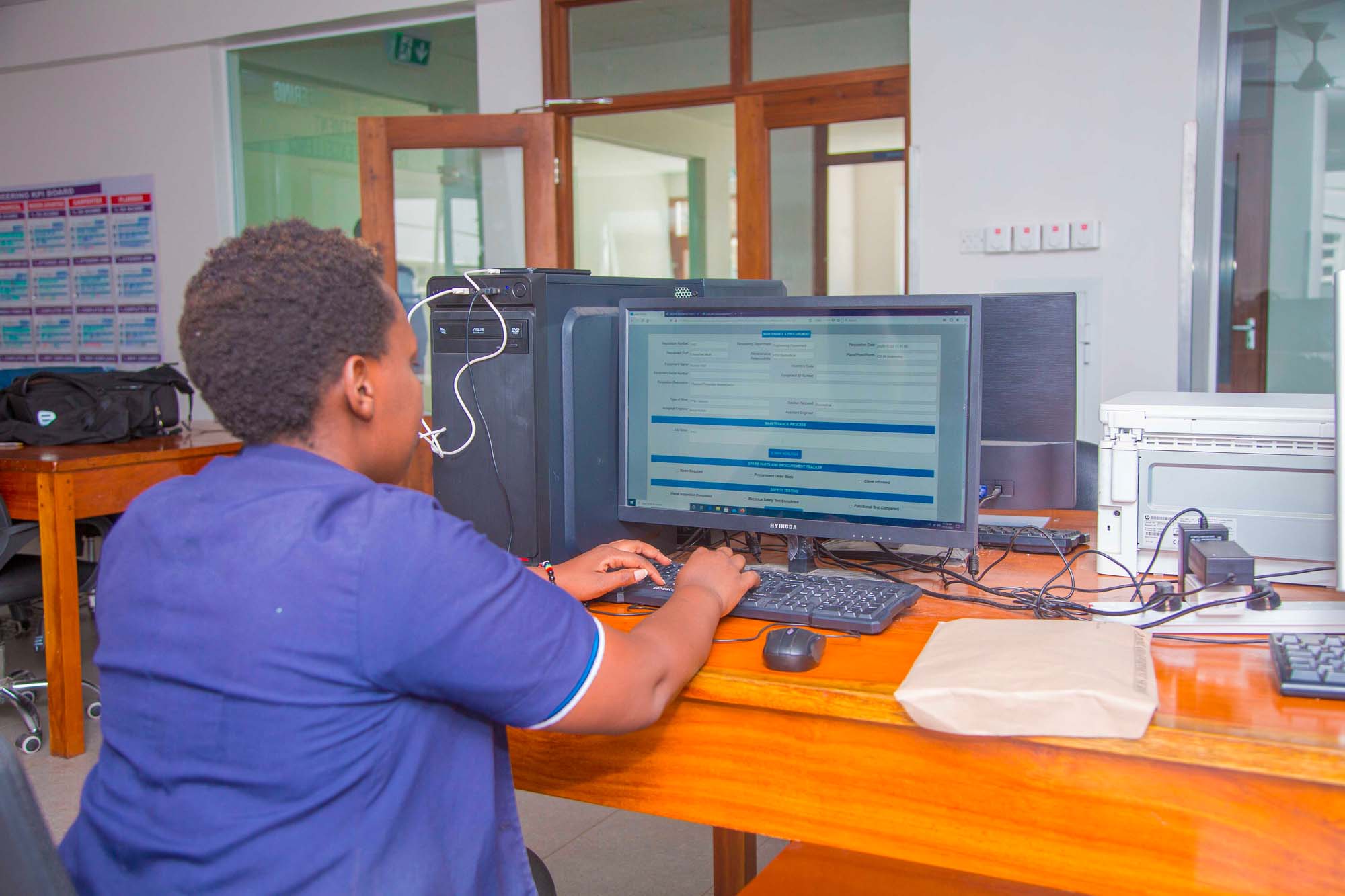Programs that provide management best-practices and tools to optimize hospital financial performance and resource management.

Touch works alongside hospital executives and clinical leaders to unlock some of the biggest challenges that Tanzanian hospitals face. Drawing on expertise from the private-sector and the science of operations management, Touch teams provide analysis, tools, coaching, and solutions for the operational challenges that negatively impact patient care.
There are over 340 hospitals in Tanzania, serving the national population of over 63 million people. Hospitals are essential to population health and serve a vital role in the healthcare system – but too often hospitals in low- and middle-income countries do not have the management resources they need to deliver high-quality care.
National budgets are limited and healthcare spending per capita in Tanzania is only $39. In addition to the public sector, Tanzania has a vibrant private health market which includes faith-based organizations. These hospitals across the public and private sectors are doing extraordinary work to balance and allocate limited resources – but some of the best-practice tools and expertise they need are locked within the private sector. We bring these strategies to health sector leaders who have seen enormous success leading operational transformation from within.


MediFIKIA seeks to deliver better outcomes for NCD patients at rural hospitals by improving supply chain management and patient tracking systems.Non-communicable diseases are the most common cause of death and disability worldwide, accounting for 70% of all deaths. NCD conditions can be especially difficult to treat in low-resource settings because chronic conditions often require specialized care and long-term patient enrollment with the health system.

One of Touch’s key partners in this portfolio is the Christian Social Services Commission of Tanzania (CSSC), a faith-based network of over 900 health facilities, both hospitals and health centers, serving 40% of Tanzania’s population. Touch serves as a partner and technical advisor to CSSC and to hospital leaders within the network, co-creating solutions like:
Innovative strategies for increasing hospital revenue
Programs to increase patient access in rural communities
Management tools to help hospital leaders run complex departments.
Our goal with these interventions is to help CSSC deliver high-quality, financially sustainable care for the millions of patients who rely on their services each year. optimize
MediFIKIA seeks to deliver better outcomes for NCD patients at rural hospitals by improving supply chain management and patient tracking systems.
Non-communicable diseases are the most common cause of death and disability worldwide, accounting for 70% of all deaths. NCD conditions can be especially difficult to treat in low-resource settings because chronic conditions often require specialized care and long-term patient enrollment with the health system.

Touch developed an innovative model for expediting patient throughput at congested hospitals. By implementing a ‘fast-track’ queue, patients have the option to seek faster, concierge service for an additional fee.
This creates a win-win for patients and for hospitals. All patients, both those electing the fast-track service and those who do not, receive expedited care (the latter group does, too, because the main queue has been decongested) and hospitals have proven to raise outpatient revenue by as much as 10%.

In Tanzania, hospital leaders, are balancing hard choices when it comes to allocating scarce resources. They need data-driven tools for managing the complexities of hospital financing, HR, commodities, and equipment.
Drawing on deep expertise in the private-sector, Touch advisors work as partners to hospital leaders developing powerful management tools that give leaders the visibility and data they need to optimize hospital operations.
Data visualization tools are not unique in commercial businesses but – sadly – they are not common in Tanzanian hospitals, where lives are at stake.